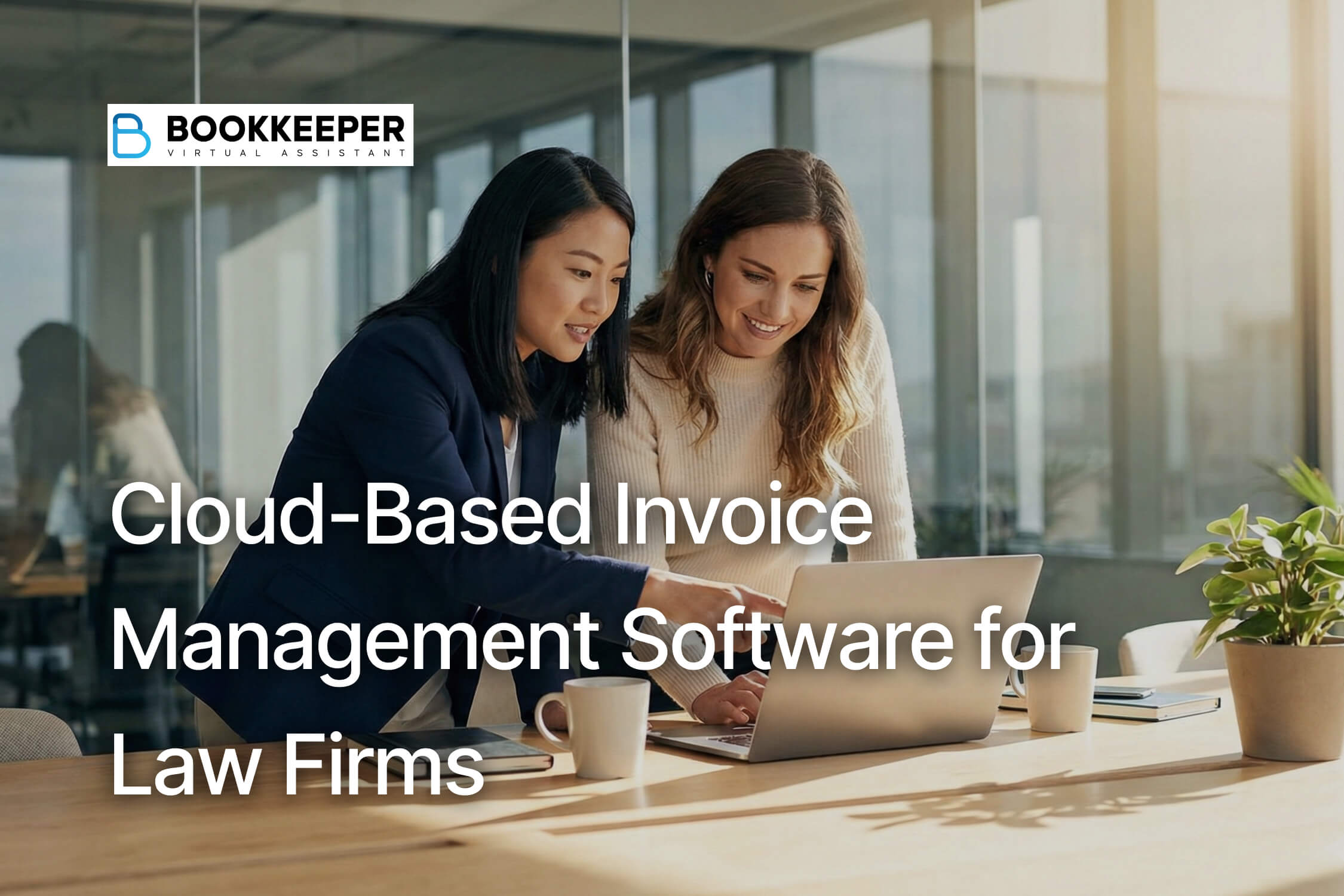Managing law firm finances shouldn't consume your day. Yet for many legal professionals, financial management becomes a constant source of frustration and lost productivity. Study shows that attorneys spend only 2.5 billable hours per day and the rest is lost to administrative tasks. You earned your law degree to serve clients and solve legal matters, not to wrestle with QuickBooks or stress over trust account reconciliation deadlines.
Unfortunately, financial tasks in law firms can't be ignored. Trust account compliance failures can result in bar discipline. Poor cash flow management can derail even the most successful practices. And as your practice grows, so do the financial demands—creating a cycle where growth brings more administrative burden.
This is why many law firms now turn to specialized financial support that understands the legal field. Virtual bookkeepers for law firms have emerged as an effective solution to these problems. They provide professional financial management that keeps your practice compliant and profitable while freeing you to focus on legal work. Most importantly, they deliver expertise at a fraction of the cost of hiring in-house financial staff.
If you're spending more time handling books than building your practice, it's time to consider a virtual bookkeeper trained specifically for law firms.
What is a Virtual Bookkeeper for Law Firms?
A virtual bookkeeper for law firms is a certified professional who specializes in handling financial transactions of legal practices remotely. They use cloud-based tools to manage your firm's finances. They handle everything from transaction recording to complex trust accounting management, all while ensuring compliance with regulations and accounting standards.
The difference between a virtual bookkeeper for law firms and general bookkeepers, is their specialization and understanding the specific regulations and ethical requirements of legal practice.
Accounts Payable
Your virtual bookkeeper handles vendor payments, tracks due dates, and ensures you take advantage of early payment discounts while maintaining healthy cash flow. They'll set up approval workflows that work with your firm's hierarchy and keep detailed records for tax purposes.
Accounts Receivable
They track client payments, follow up on overdue accounts, and generate aging reports to help you identify collection issues early. Your bookkeeper can also implement systems that make it easier for clients to pay on time.
Trust Accounting
Your virtual bookkeeper ensures strict compliance with state bar regulations, maintains detailed records for each client, and provides the reporting you need for audits. They understand the three-way reconciliation process and can help you avoid the costly mistakes that lead to disciplinary action.
Payroll Processing
They manage tax withholdings, benefit deductions, and ensure compliance with employment laws. Your bookkeeper also handles year-end reporting and helps you understand the tax impact of various compensation structures.
Monthly Bookkeeping
Consistent monthly bookkeeping keeps your finances organized and up to date. This includes categorizing transactions, reconciling accounts, and delivering monthly reports that give you a clear picture of your firm’s financial health. Regular bookkeeping also simplifies and reduces the cost of tax preparation.
Reconciling Bank Statements
They reconciled all firm accounts monthly, identifying discrepancies quickly and maintaining the detailed records required for trust account compliance. This process also helps ensure your financial reports accurately reflect your firm's true financial position.
Financial Statement Preparation
Your bookkeeper prepares income statements, balance sheets, and cash flow statements that give you the information needed to make informed business decisions. These statements are also essential for loan applications, partnership agreements, and strategic planning.
Tax Preparation
Tax preparation for law firms involves unique considerations, such as issuing 1099s for contract attorneys and identifying deductions specific to legal practices. Your virtual bookkeeper keeps records organized year-round and collaborates with your tax professional to ensure accurate, timely filings while helping you maximize deductions.
What Tools Do Virtual Legal Bookkeepers Use?
Professional virtual bookkeepers for law firms rely on specialized software and platforms designed to handle legal practice finances. Here’s a breakdown of their proficiency:
- Legal Accounting Software: QuickBooks Desktop Premier with legal-specific features, PCLaw, and Tabs3 for legal bookkeeping and trust account management.
- Practice Management Integration: Seamless connections with Clio, MyCase, PracticePanther, and other legal practice management systems for automated time and billing data transfer.
- Banking and Payment Platforms: Integration with legal-specific payment processors like LawPay, Confido Legal, and IOLTA-compliant banking systems for secure client payment processing.
- Document Management Systems: Access to NetDocuments, ShareFile, and other secure platforms.
- Cloud-Based Collaboration Tools: Microsoft 365, Google Workspace, and specialized legal communication platforms.
The most effective virtual bookkeepers work within your existing technology environment while suggesting improvements for greater accuracy and efficiency in your financial operations.
How to Choose a Virtual Bookkeeper for Your Law Firm
Selecting the right virtual bookkeeper for your law firm requires careful evaluation of their legal industry experience and technical capabilities because not every bookkeeper is equipped to handle legal bookkeeping. Here’s what to consider when hiring one:

Look for Legal Industry Experience: Choose someone who has worked specifically with law firms and understands trust accounting rules, legal billing practices, and bar compliance requirements. Generic business experience isn't enough when dealing with the aspects of legal practice finances.
Verify Tech Skills and Tools: Your virtual bookkeeper should be proficient with legal-specific accounting software and have secure systems for accessing your financial data. They should also be able to integrate with your practice management software and workflow easily.
Check References and Credentials: Ask for references from other law firms and verify any relevant certifications. Look for bookkeepers who stay current regulations in accounting practices and legal industry, as both fields evolve continuously.
Communication and Reporting: A reliable bookkeeper should provide regular updates, financial reports, and be available to answer questions clearly and promptly.
Benefits of Having a Virtual Bookkeeper for Law Firms
Partnering with a virtual bookkeeper can be a strategic move for your law firm’s growth and stability. Here are the key advantages they offer:
- Save time and focus more on billable work
- Reduce costs compared to in-house bookkeeping
- Improve accuracy and reduce financial errors
- Stay compliant with trust accounting rules
- Access timely reports for smarter decision-making
- Better Cash Flow Management
- Scalable services that grow with your practice
Simplify Your Firm’s Finances
Your legal expertise deserves support from specialists who understand your field. A virtual bookkeeper for law firms brings the knowledge and consistency your practice's finances need.
Don’t let bookkeeping challenges slow down your growth. At Bookkeeper.law, we provide virtual bookkeeping services tailored specifically for law firms. Whether you need full-time support or help with a specific project, our trained staff are here to keep you financially sound and legally compliant.






